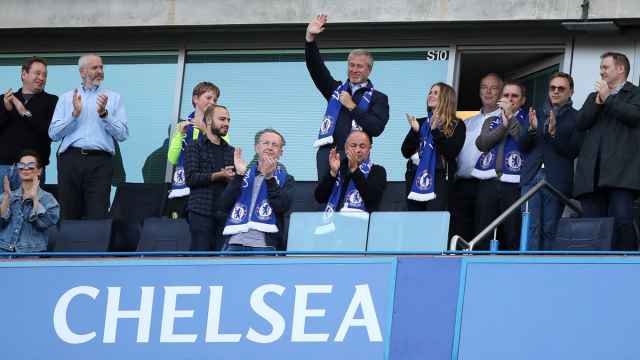ASHGABAT, Turkmenistan — Turkmen President Gurbanguly Berdymukhammedov suggested Wednesday that there are limits to his desire to reform, urging the nation to honor a book written by his eccentric predecessor, Saparmurat Niyazov.
Praising its take on Turkmenistan's "inimitable culture, peculiar way of life and rich spiritual world," Berdymukhammedov made it clear that the book, the "Rukhnama," would remain the centerpiece of Turkmen society.
"The Rukhnama has helped the world learn about the numerous great states built by our nation throughout its history," he said in a written address to the nation marking Rukhnama Day. "The Rukhnama will continue to serve as a spiritual source that multiplies our energy and strength."
Berdymukhammedov, a 55-year-old dentist with a penchant for sports cars and thoroughbred horses, is officially nicknamed "Arkadag" (The Patron), and he wields virtually unlimited powers.
Niyazov, who died of heart failure in 2006 and ruled his reclusive Central Asian nation for more than two decades, was widely regarded as one of the world's strictest and most bizarre autocrats.
Officially titled "Turkmenbashi" (Head of the Turkmen), he published the Rukhnama in 2001 and made it central to all aspects of life in the country.
It replaced history lessons in schools, and knowledge of the book was even made mandatory for anyone who wanted to obtain a driver's license.
The book, a mixture of folklore, morality, autobiography and history written in oracular style, glorifies the Turkmen as a 5,000-year-old nation that founded 70 states and empires.
Niyazov's reign was marked by a ban on opera, circus and ballet. He renamed the months of the year after national symbols or family members, cut the length of school and university studies and banned people from studying abroad.
Berdymukhammedov has gradually undone some of his predecessor's policies.
He has allowed wide access to the Internet and let Turkmen citizens study abroad, and he restored the National Academy of Sciences, which was abolished by his predecessor. Opera and circuses have also returned, but not classical ballet.
In the field of education, secondary school students study for 10 years, rather than nine under Niyazov, and undergraduate students spend five years in college rather than three.
Compulsory daily Rukhnama drills in schools have been reduced to one hour a week, and dropouts no longer have to pass exams on knowledge of the book. The month of September, renamed Rukhnama by Niyazov, has also been given back its original name.
Related articles:
A Message from The Moscow Times:
Dear readers,
We are facing unprecedented challenges. Russia's Prosecutor General's Office has designated The Moscow Times as an "undesirable" organization, criminalizing our work and putting our staff at risk of prosecution. This follows our earlier unjust labeling as a "foreign agent."
These actions are direct attempts to silence independent journalism in Russia. The authorities claim our work "discredits the decisions of the Russian leadership." We see things differently: we strive to provide accurate, unbiased reporting on Russia.
We, the journalists of The Moscow Times, refuse to be silenced. But to continue our work, we need your help.
Your support, no matter how small, makes a world of difference. If you can, please support us monthly starting from just $2. It's quick to set up, and every contribution makes a significant impact.
By supporting The Moscow Times, you're defending open, independent journalism in the face of repression. Thank you for standing with us.
Remind me later.





